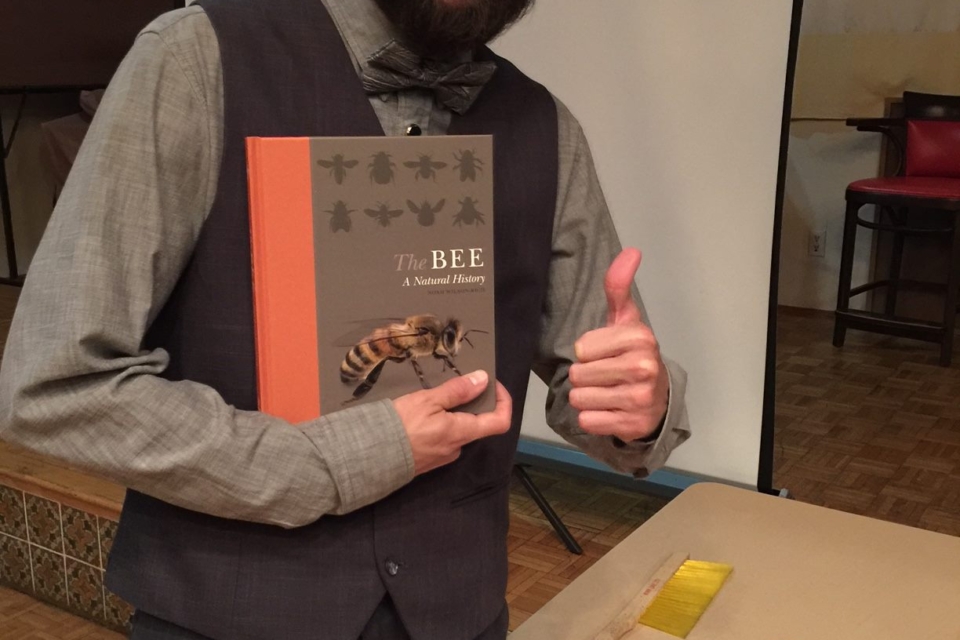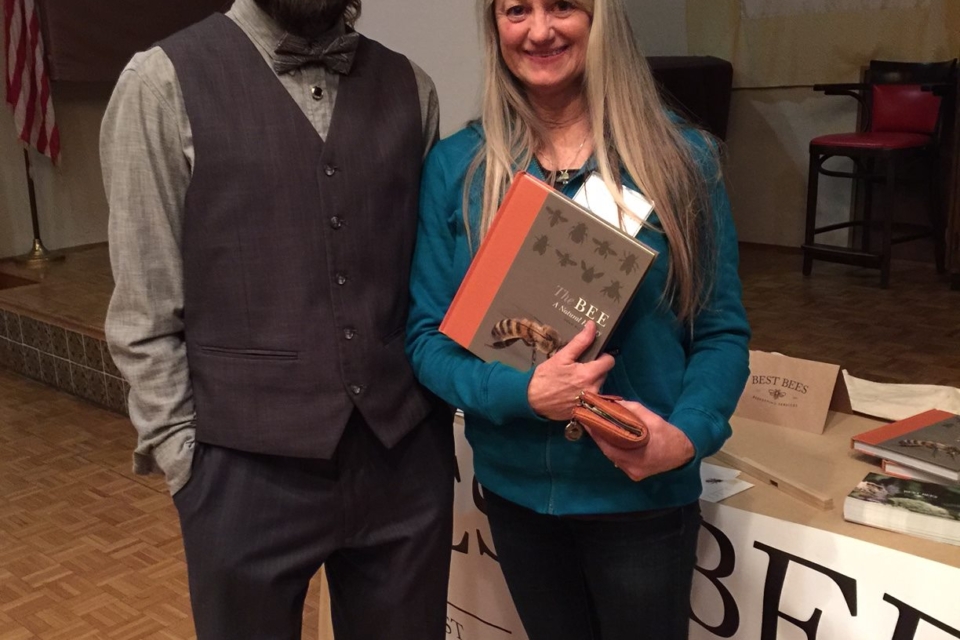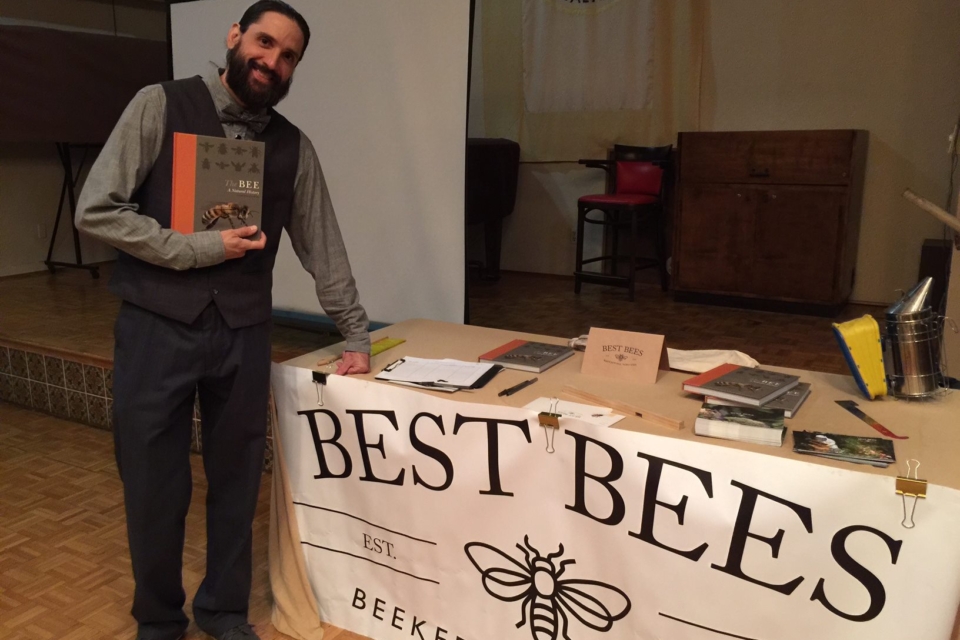Date/Time
Wednesday, May 3, 2017
7:00 pm - 9:00 pm
Add Reminder to Calendar: iCal Google Calendar
Location
Point Dume Club House
29500 Heathercliff Drive
Malibu, California
Tags: 2017, Bees, honeybees, Meeting, Season 2016-2017, Will Bristol
For our May event, Will Bristol presented Bringing Honeybees to Your Garden.
Will Bristol discussed how to bring honeybees to your garden, from beehive ownership to gardening for bees. He shared information on the current state of honeybee health, plants that honeybees love and how you can get your very own beehive. Will was excited to talk about their revolutionary Honey DNA research program which shows us exactly which plants bees are making honey from.
Colony Collapse Disorder is now called Multiple Stress Disorder because we now know that Bee colonies fail for a number of reasons. Bees are susceptible to pathogens and parasites and the number one bee killer is mites.
Our food supply is heavily dependent on bee pollination: 130 fruits and vegetables require bee pollination.
There are certain things that we as gardeners can do to help foster the health of our bee population:
- Set up a hive in your yard and provide an accessible water source such as a fountain
- Plant a pollinator garden
- And most of all, limit chemical fertilizers and do not use pesticides
DNA research has been conducted on plant sources of honey. In the Boston area, it has been discovered that Linden trees are the primary source that bees forage to produce honey. In the Los Angeles area brand, new DNA research just released showed that the dominant nectar source comes from Pine trees. The number two source is stone fruit.
Research also has shown that bees are the healthiest when they have a diverse selection of plants from with to forage. Interestingly, bees in urban areas have been found to be the healthiest, while those in the suburbs are less healthy. And bees in rural areas, where they are restricted to a limited number of nectar sources, are the least healthy.
Will spoke about life in the beehive. The Queen bee lives between three to four years, while the worker bees and male drones only live three to four weeks. It takes bee eggs three to six days to hatch. So there is a continued renewal of the bee population in a healthy hive.
When you set up a hive, the first year will be devoted to gathering honey for the bees. You can only harvest honey in the second year. Honey gives bees food and pollen gives them protein. A good source of accessible water is very important for the health of bees.
Best Bees is a non-profit company that was set up in Boston in 2010. It has now expanded to several larger urban areas. The company now maintains over 650 hives on the top of commercial buildings. Every hive that they manage produces research. Recently they have partnered with National Geographic to conduct DNA research on plant sources for honey. Best Bees will also come to your residence and provide consultation on where to set up your hive. They deliver, install, and manage your hive on a monthly basis for a fee.
Usually, it is best to situate a hive facing east as the bees wake up to the morning sunrise. It is also important to provide a clear aerial pathway from the hive so that the bees have easy access. Bees have been known to travel up to five miles to forage for nectar. For more information on Best Bees Co. and their services, visit their website: https://bestbees.com.



